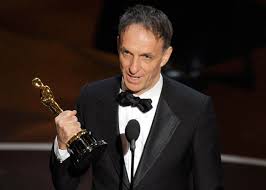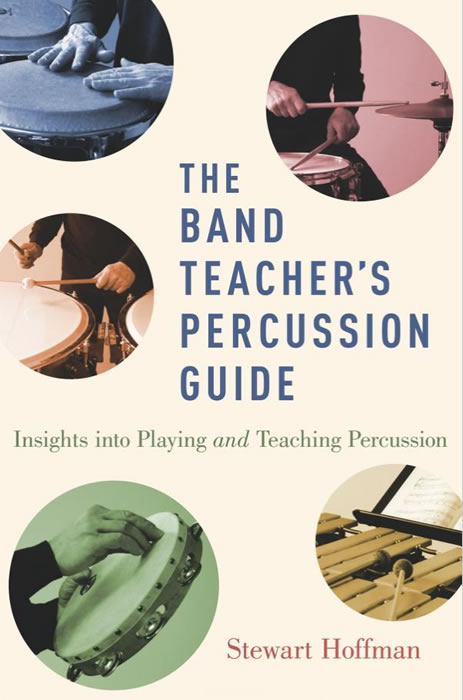Hearing Between the Lines
(Profile of film composer Mychael Danna)
The National Post, 4 September 1999
By Stewart Hoffman

Mychael Danna accepting an Academy Award for Best Film Score, The Life of Pi, in 2013.
Film composer Mychael Danna’s condo, like much of his music, is drenched with the exotic. The film composer’s home overflows with Indian carpets, Moroccan lanterns, Thai pillows, Cambodian bells, hand painted silks and an assortment of instruments with names like gopichand and tanpura. The condo peers off the edge of Toronto from twenty-seven floors above a seemingly infinite Lake Ontario.
His books, too, point to other places; mixed in with those on film theory are titles such as Balinese Character and India. And Lawrence of Arabia. “I enjoy reading about misplaced people,” Danna says, “people that are uncomfortable with the world and want to change it, go somewhere else, learn a new way of life.”
Like that misplaced Englishman charging through the desert to Aqaba, Danna’s music – a minimalist blend of east and west, ancient instruments and electronics – at first seems at odds with its environment.
For Atom Egoyan’s The Sweet Hereafter, the Iranian ney flute, as well as lutes, viols and recorders, evokes nothing of the northern British Columbian community where the action is placed. And in Ang Lee’s The Ice Storm, the Native American flute, and the Indonesian gamelan orchestra, are about as harmonious with the trendy families living in the 1970s Connecticut countryside as a honky-tonk piano with a string quartet.
But there’s a method to Danna’s madness that makes the seemingly incongruous juxtapositions work. He rejects the film scoring tradition whereby the music reflects the action on the screen, an approach that, in a Film Score Monthly interview, Danna called “patronizing” in it’s assumption “that people are so stupid that they don’t know what’s going on.” So you won’t find him “Mickeymousing”, a tired technique which might fuse the image of a train leaving the station to accelerating musical “chugs”, or a look of surprise to a blast of brass. He also doesn’t write love themes that tip you off to that imminent first kiss. Which is not to snub the often magical scores of Hollwood’s Golden Age: the Robin Hood of Erich Korngold, say, or Bernard Herrmann’s Citizen Kane. But Danna approaches film from a more oblique perspective, delving deep to find a subtext that illuminates the film’s theme from an unexpected angle. Danna’s Charles Foster Kane might be attended by music for a Roman Emperor.
The ney flute and ancient instruments of Hereafter underscore the film’s parallel story, that of the Pied Piper and the medieval town in which that fable took place. And though the originally planned Moog score for Ice Storm would have contributed to the film’s ’70s feel, the Native flute and gamelan convey the sounds of nature, to provide a timelessness that serves as a foil for the superficiality, aberrant behaviour, and disconnectedness of the central characters. “Sometimes,” says Danna, “the film isn’t about what you’re seeing on screen.”
What is extraordinary about Mychael Danna, says Atom Egoyan, the filmmaker with whom he is most closely associated, is his “ability to deal with a degree of emotional consequence through the music which may not have always been immediately apparent.”
It’s a talent that has served him well, placing him among the most acclaimed and sought after film composers today. His recent credits include scores for Kama Sutra, the unfortunately neglected Regeneration, and an as yet unreleased The Confession, starring Ben Kingsley and Alec Baldwin. Even amidst the critical lambasting given Joel Schumacher’s 8MM, Danna’s score was singled out for praise. (“About the only thing 8MM has going for it,” wrote one critic, “is an exotic east/west score by . . . Mychael Danna.”) His ongoing partnership with Egoyan has resulted in two Genie Awards for Best Film Score (Exotica and The Sweet Hereafter), and one of seven other Genie nominations, for Egoyan’s 1988 film, Family Viewing. You can find Danna’s latest work at the Toronto International Film Festival; his most recent collaboration with Egoyan, Felicia’s Journey, is set for the opening night Gala on September 9, with Ride With the Devil, his second Ang Lee film, also slated for the gala series.
Danna already seemed to know his game plan at eight years old when, at his first piano lesson, he told his teacher he wanted to learn composition. As a teenager, he played the organ in church and the keyboards in experimental bands in Burlington, Ontario, where the family had moved from Winnipeg. He studied composition at the University of Toronto, wrote music for student theatrical productions, and continued his exploration of electronic music, then went on to work as composer-in-residence at Toronto’s McLaughlin Planetarium.
He met Egoyan in 1986. It was a meeting the now 40-year old composer refers to as the “accident” that got him into film making. “If I’d never worked with him,” says Danna, “I never would have found an appealing reason to work in this business.” As for Egoyan’s first impression of Danna’s work: “His music just floored me.”
When the two got together soon afterward to make Egoyan’s first feature, Family Viewing, neither of them, says Danna, had much background in film. “He came from a theatre background and I came from a purely music background. We just applied what we knew about those arts to making film and film music. We came fresh.”
But not even their 13-year old friendship, or their five films together, guarantees smooth artistic sailing. The process of arguing and challenging each other, says Egoyan, is one “that we both really enjoy and need.” The source of their biggest dispute, he adds, was Felicia’s Journey.
Egoyan’s concept of a Mantovani-like sound, but “something a bit more skewed” to reflect the central character’s psychosis, caused Danna some discomfort. “He doesn’t like that sound,” says Egoyan, “for all the right reasons I guess.” Danna’s approach, which finally won out, was inspired by the music of Arnold Schoenberg – not melodic in the traditional sense, and about as far removed from Mantovani as you can get. An initial “row” of twelve notes is stretched, compressed, turned upside down, and transfigured every which way following strict rules.
“The male lead,” Danna says, “is this puzzle that has many different permutations to his character. But deep below there is a code to what he is about. This technique is about him.” Ultimately, Egoyan says, it all “worked brilliantly,” providing a tonal portrait “that informs the character’s gradual slipping into a psychosis. I think Mychael and I both need structural reasons to justify what we’re doing. These are the arguments we have. We really need to define our themes, and what we’re trying to express with those themes.”
But Danna doesn’t always get things his way. The request by Ang Lee and the Ride With the Devil producers that Danna go the more traditional route and create a grand, propulsive, score paralleling the sweep of the film’s Civil War setting, resulted in an effort with which Danna is still not entirely at ease. “This was a case where I went against what I wanted,” says Danna. “But I really trust Ang as a filmmaker; I think he’s one of the greater filmmakers on earth.”
He can’t restrain a smile, though, listening to a track of battle music from the score. But it’s a smile touched with incredulity, like that of a man staring into a mirror who doesn’t quite recognize the features in the reflected image. For a composer still convinced that he’s “unable to write Romantic music,” the heroic heights scaled by the battery of Civil War era instruments and the thundering symphony orchestra collected on a London soundstage still surprises him. “It has it’s moments,” says Danna, “where I couldn’t believe I wrote it.” His final verdict? “I don’t know the answer yet. I’m still too close to it.”
Is there a theme running through Mychael Danna’s own life? “There’s that sense of dislocation,” he admits, “and dissatisfaction with this time and place that maybe led me to do some exploring. But through the exploring, I’ve also learned that I don’t belong anywhere else either. In that way I think Toronto is the best city for me.” Because with its “mixture of people”, and its own dynamic blend of east and west, says Danna, “It feels like it’s not really anywhere. Maybe that’s where I feel most comfortable.”
And when you look out from Danna’s studio, over and beyond the Lake, you can easily imagine yourself wherever you want to be.
(Profile of film composer Mychael Danna)


